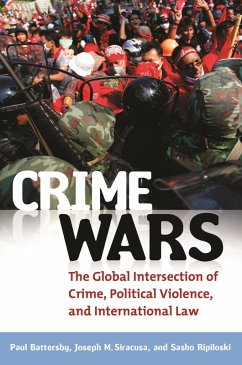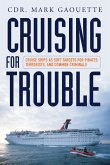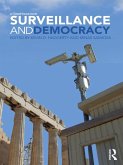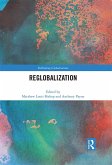This expert analysis addresses the many interconnections between political violence and crime, including the transnational crimes of non-state actors and the international crimes of states.
How crime is defined goes to the heart of the boundaries drawn between legitimate and illegitimate use of force; between violence and non-violence; between legality and criminality. Crime Wars: The Global Intersection of Crime, Political Violence, and International Law presents a well-balanced, introductory analysis of this critically important subject, addressing the many points of intersection between political legitimacy, law, political violence, and criminal activity.
This thought-provoking work examines the criminalization of the developing world, opening up debate about the nature and cause of acts that transgress laws, rules, and social norms. Acknowledging the subjective nature of crime, it nevertheless urges readers to ask difficult questions about why law-abiding persons and states sanction rule infringement, law breaking, and amoral policy. Perhaps most importantly, the authors assess structures of global and regional governance, including legal regimes and major international non-governmental agencies, to offer unique, historically grounded insights into security challenges and the ways in which global crimes and wars can be addressed in the 21st century.
How crime is defined goes to the heart of the boundaries drawn between legitimate and illegitimate use of force; between violence and non-violence; between legality and criminality. Crime Wars: The Global Intersection of Crime, Political Violence, and International Law presents a well-balanced, introductory analysis of this critically important subject, addressing the many points of intersection between political legitimacy, law, political violence, and criminal activity.
This thought-provoking work examines the criminalization of the developing world, opening up debate about the nature and cause of acts that transgress laws, rules, and social norms. Acknowledging the subjective nature of crime, it nevertheless urges readers to ask difficult questions about why law-abiding persons and states sanction rule infringement, law breaking, and amoral policy. Perhaps most importantly, the authors assess structures of global and regional governance, including legal regimes and major international non-governmental agencies, to offer unique, historically grounded insights into security challenges and the ways in which global crimes and wars can be addressed in the 21st century.









